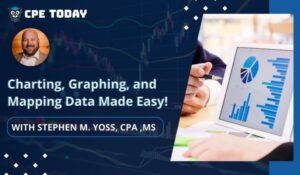
Major Topics
Learning Objectives
- Determine what constitutes “interest” specifying its key components, and identify whether the various types of interest are tax deductible or nondeductible.
- Recognize how to deduct interest that is paid or accrued during the tax year applying different methods of accounting, specify the applicable federal rate, recognize the effects of unstated interest on transactions, and cite the imputed interest rules in the context of debt instruments.
- Identify the interest allocation rules and the allocation period for a loan, recognize the difference between an allocation of loan proceeds that are deposited in an account and the allocation of loan proceeds received in cash, and cite loan repayments in the order they are deemed repaid.
- Determine when certain distributions commonly referred to as “dividends” are actually interest and the tax treatment of interest that is earned on such items as income on frozen deposits and U.S. Savings Bonds.
- Recognize an installment sale transaction, determine what constitutes the installment method, specify the parts of each payment on an installment sale, and cite the related party sales rules of ?453.
- Identify exceptions to the general income inclusion rule and their effect on a taxpayer, and determine the different effects of nonrecourse indebtedness from the effects of recourse indebtedness on foreclosure.
- Specify bad debt categories specifying the impact of nonbusiness bad debt recovery, identify when a business deducts its bad debts from gross income, and recognize which accounting method to apply to business bad debts.
Course Description
This mini-course brings the practitioner information on tax issues affecting interest and debt. The various types of interest and their required allocation are explored and reviewed. For the economically troubled client, special attention is devoted to debt cancellation, repossession, discounts, and foreclosure. The program also discusses installment sales, taxable interest, and bad debts.
Compliance Information
Advanced Preparation
None
Field of Study
Taxes
Credits
2.5 Credits
Published Date
April 21, 2023
Revision Date
February 15, 2024Course Authors
Danny Santucci
Danny earned his Bachelor of Arts in Political Science from the University of California at Irvine in 1969. He received his Juris Doctorate from Boalt Hall School of Law, University of California at Berkeley in 1972, at which time he began practice as a tax attorney in Southern California. His legal career started with the business and litigation firm of Edwards, Edwards, and Ashton. Later he joined the Century City entertainment firm of Bushkin, Gaims, Gaines & Jonas working for many well-known celebrities. In 1980, Danny established the law firm of Santucci, Potter, and Leanders, in Irvine, California. With increasing lecture and writing commitments, Danny went into sole practice in 1995. His practice emphasizes business taxation, real estate law, and estate planning.
Overview
This mini-course brings the practitioner information on tax issues affecting interest and debt. The various types of interest and their required allocation are explored and reviewed. For the economically troubled client, special attention is devoted to debt cancellation, repossession, discounts, and foreclosure. The program also discusses installment sales, taxable interest, and bad debts.
Course Details
- Determine what constitutes “interest” specifying its key components, and identify whether the various types of interest are tax deductible or nondeductible.
- Recognize how to deduct interest that is paid or accrued during the tax year applying different methods of accounting, specify the applicable federal rate, recognize the effects of unstated interest on transactions, and cite the imputed interest rules in the context of debt instruments.
- Identify the interest allocation rules and the allocation period for a loan, recognize the difference between an allocation of loan proceeds that are deposited in an account and the allocation of loan proceeds received in cash, and cite loan repayments in the order they are deemed repaid.
- Determine when certain distributions commonly referred to as “dividends” are actually interest and the tax treatment of interest that is earned on such items as income on frozen deposits and U.S. Savings Bonds.
- Recognize an installment sale transaction, determine what constitutes the installment method, specify the parts of each payment on an installment sale, and cite the related party sales rules of ?453.
- Identify exceptions to the general income inclusion rule and their effect on a taxpayer, and determine the different effects of nonrecourse indebtedness from the effects of recourse indebtedness on foreclosure.
- Specify bad debt categories specifying the impact of nonbusiness bad debt recovery, identify when a business deducts its bad debts from gross income, and recognize which accounting method to apply to business bad debts.
Intended Audience —
Advanced Preparation — None
Field of Study — Taxes
Credits — 2.5 Credits
IRS Program Number –
Published Date – April 21, 2023
Revision Date – February 15, 2024
Course Authors
Danny Santucci
Danny earned his Bachelor of Arts in Political Science from the University of California at Irvine in 1969. He received his Juris Doctorate from Boalt Hall School of Law, University of California at Berkeley in 1972, at which time he began practice as a tax attorney in Southern California. His legal career started with the business and litigation firm of Edwards, Edwards, and Ashton. Later he joined the Century City entertainment firm of Bushkin, Gaims, Gaines & Jonas working for many well-known celebrities. In 1980, Danny established the law firm of Santucci, Potter, and Leanders, in Irvine, California. With increasing lecture and writing commitments, Danny went into sole practice in 1995. His practice emphasizes business taxation, real estate law, and estate planning.
All of our self-study courses are NASBA approved (through our partners at K2 Enterprises) the revisions to the Statement on Standards for Continuing Professional Education (CPE) Programs (Standards).
Your Registration Includes:
- ✓ Course materials (video & PDF version)
- ✓ Unlimited attempts to complete exam
- ✓ Course materials (PDF & Sample Materials)
- ✓ Instant grading & certificate of completion
- ✓ One year access to complete your CPE
- ✓ Completion certificate



